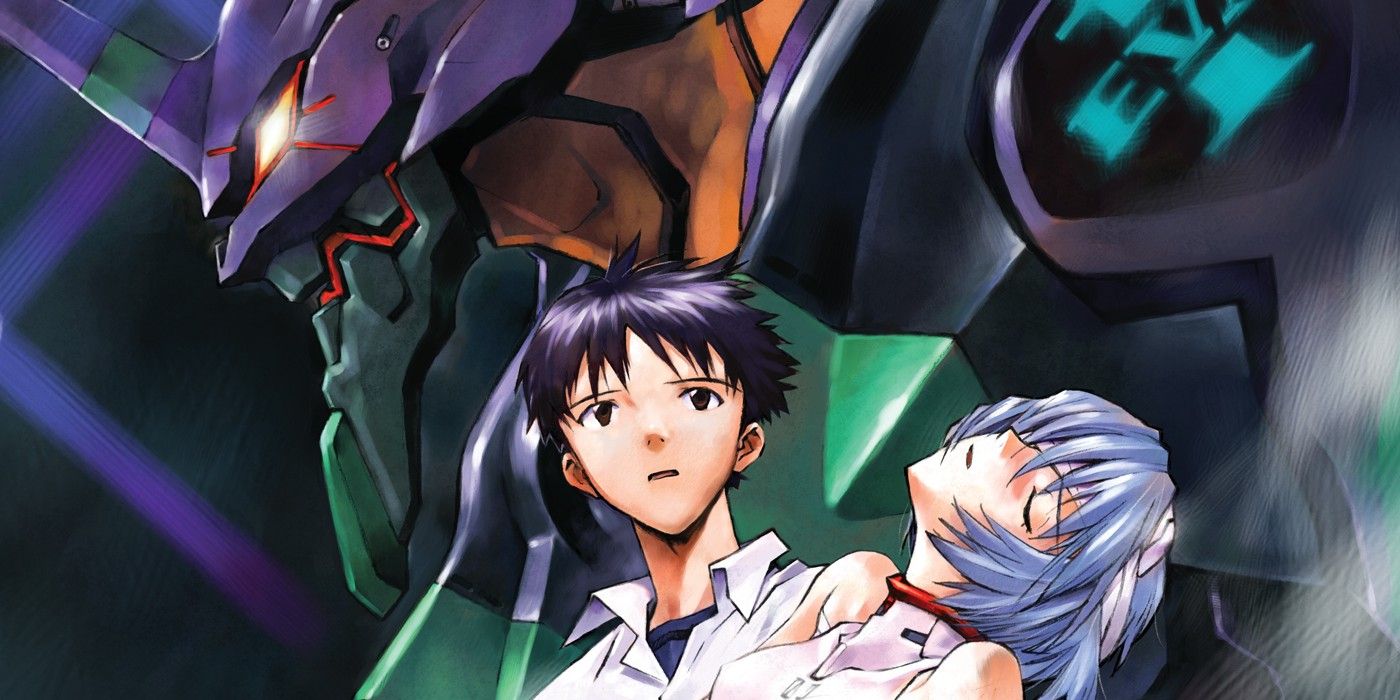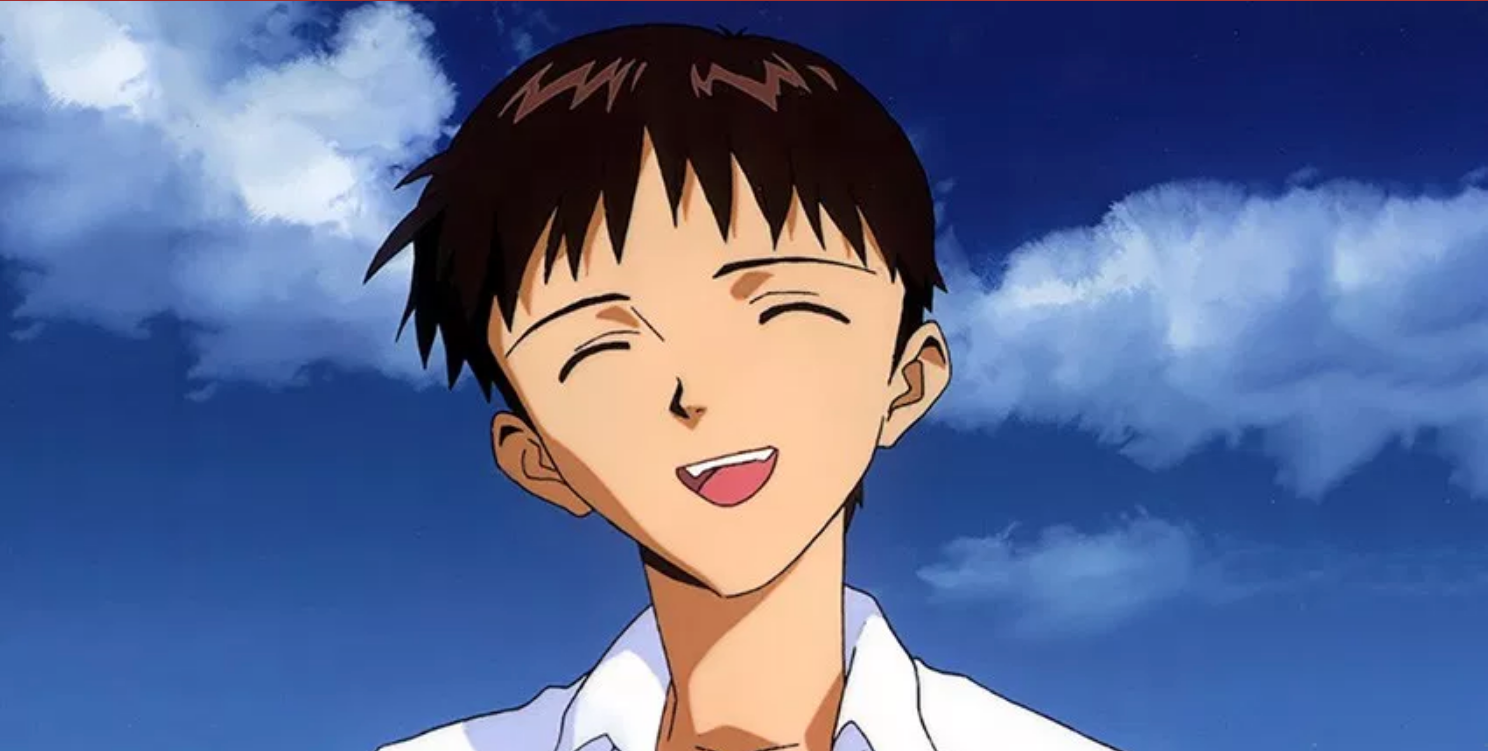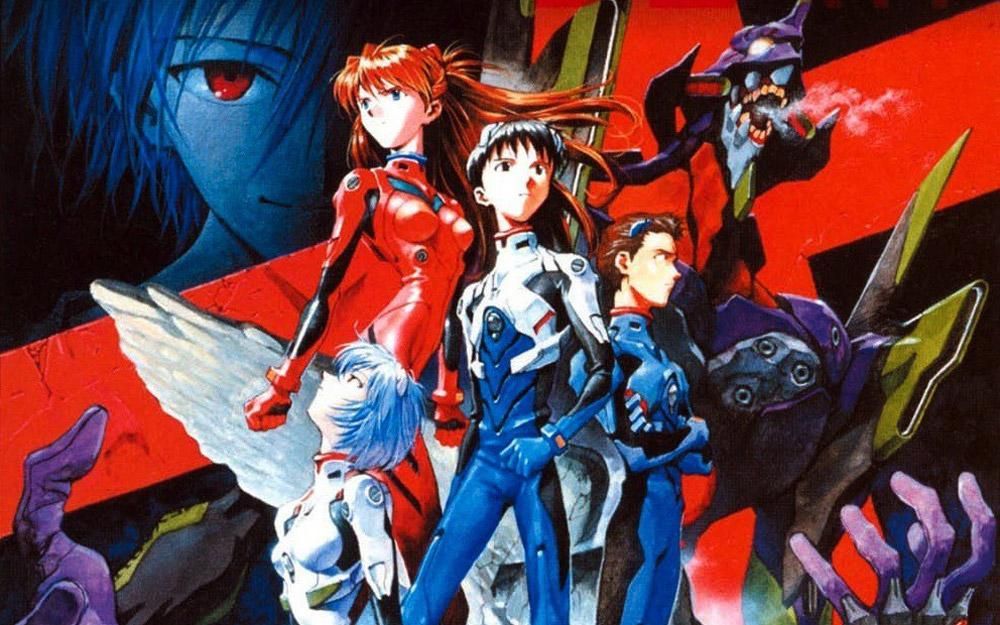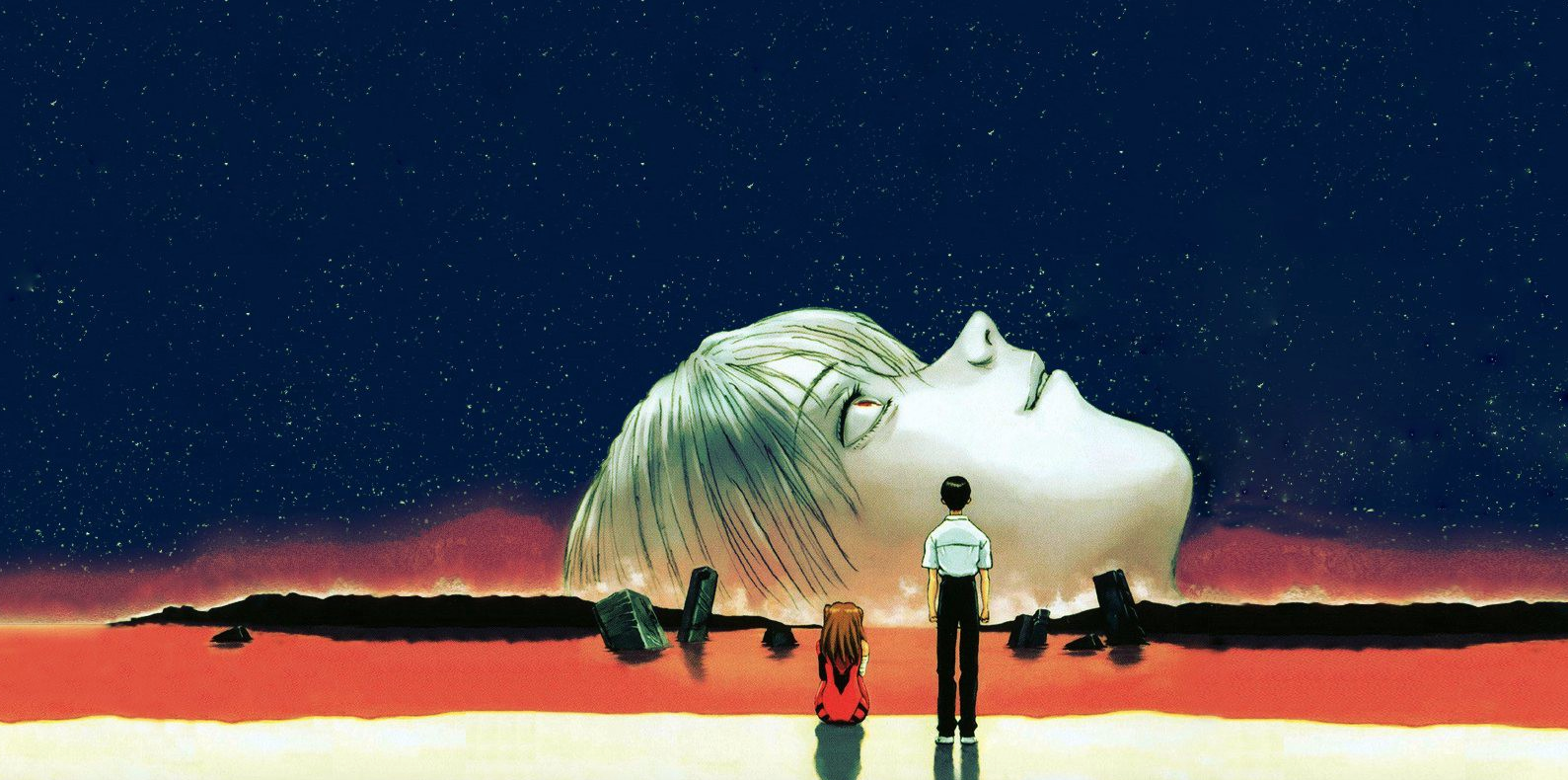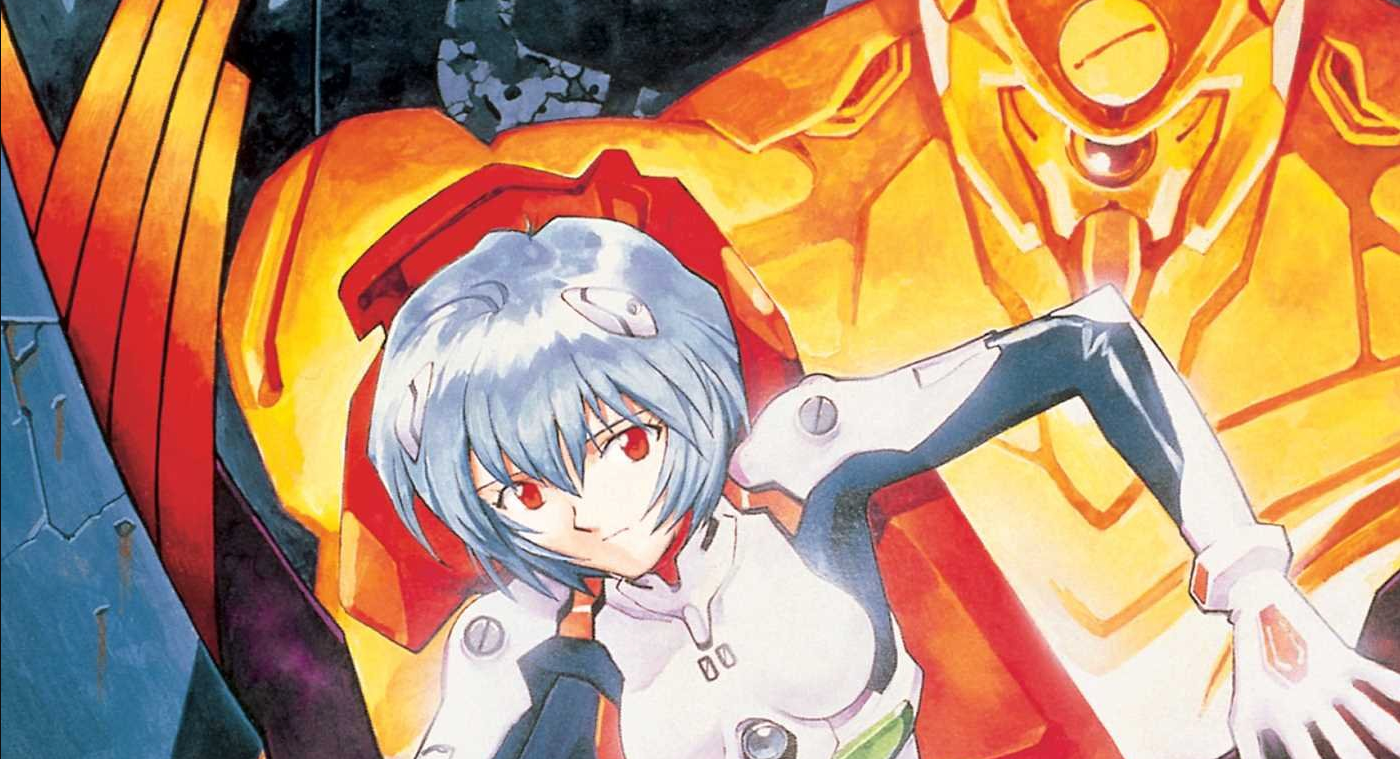Netflix has been steadily building itself up as a go-to platform for anime fans, scooping up the rights to fan favorites like Cowboy Bebop and Death Note, and the exclusive rights to future classics like Masaaki Yuasa's Devilman Crybaby. However, the streaming service's most impressive get so far remains the cult series Neon Genesis Evangelion, whose global license has been elusive since ADV Films ceased operations nearly a decade ago. During that time, non-Japanese-speaking fans could only get hold of subtitled and dubbed copies through pirate sites and old home video releases.
The Evangelion television series is just 26 episodes, which probably comes as a surprise for those familiar only with the franchise's reputation. It's loosely a story about teenage pilots who use giant mechs to defend Earth from frequent "Angel" attacks in the then-future of 2015. Really, it has very little to do with the mecha genre that it deconstructs, and everything to do with Freudianism, religious symbolism and mental health. Tales of its fraught production under writer/director Hideaki Anno lend the series an unmistakably autobiographical quality, only adding to its mythic status over time.
Anno famously ran out time, money and emotional stability toward the end of production, resulting in a frenetic, unfinished finale that left viewers unsatisfied. Not that it hampered Evangelion's commercial success, mind you; it's a billion-dollar franchise. Anno has attempted to rectify that controversy ever since. But, two spinoff films from the show and an ambitious series of "Rebuild" movies -- plus an accompanying manga -- leave us with multiple versions of the same story. (And Game of Thrones fans thought they had it rough.)
Should you believe the hype about Evangelion? Yes. But, is all Evangelion content worth consuming? Not necessarily. To make your life substantially easier than Shinji Ikari's, we've compiled a suggested viewing/reading order, as well as differentiated which entries are "essential," "optional" or "recommended."
ESSENTIAL: The Neon Genesis Evangelion TV Series (1996-7)
It might not be the most satisfying version, but the original anime series is the best place to start to get the full head-screwy Evangelion experience. It's as much a rite of passage for every budding Evangelion fan as it is for Shinji to "just get in the robot." The full series is avaliable for streaming on Netflix while the Ultimate Edition Blu-ray set can be purchased via GKIDS.
OPTIONAL: Death & Rebirth (1997)
Death & Rebirth is the first of two films released quickly after the Evangelion TV series. It and its direct sequel, End of Evangelion, were created by Anno to appease fan demand for a better conclusion to the story. Death & Rebirth is effectively a feature-length recap of the show with extra, unaired footage, stopping just short of the end, and therefore not required watching for those who've seen the show already, nor quite an adequate substitute for those who haven't. The film is avaliable to stream on Netflix.
ESSENTIAL: End of Evangelion (1997)
Released in theaters a few months after Death & Rebirth, End of Evangelion gives the anime series the grander send-off it deserved. Whether this ending is the definitive one is something Evangelion devotees will debate about forever. Aside from that, End of Evangelion has made frequent appearances on "Best Of" animated movie lists since its release. It's essential viewing for any fan of the art form, and not only Evangelion-ophiles. (It's also a great lesson in what not to do at a hospital bedside.) Like Death & Rebirth, the film is also avaliable to stream on Netflix.
ESSENTIAL: The Rebuild of Evangelion Film Series (2007-21)
Since 2007, Anno has been busy revamping Evangelion once again for the big screen. The cryptically titled "Rebuild" series comprises 1.0 You Are (Not) Alone, 2.0 You Can (Not) Advance and 3.0 You Can (Not) Redo, with the fourth and final installment, 3.0+1.0: Thrice Upon a Time eventually released this year after some delays.
While the first three don't deviate too significantly from the original series, the fourth delivers a completely different kind of ending. Until the fourth's release, only their breathtaking animation -- particularly the opening action sequence in 3.0 -- made Anno's remakes really worth watching; the movies didn't really improve on or innovate the original story enough to be essential viewing. However, the wholly satisfying conclusion that Thrice Upon a Time delivers finally justifies the film series' existence, preventing them from being something only completionists will want to tick off their list. All four movies are currently streaming on Amazon Prime.
RECOMMENDED: The Neon Genesis Evangelion Manga (1994-2014)
Created concurrently with Anno's anime series, Yoshiyuki Sadamoto's Evangelion manga was arguably the most cohesive version of the story until the completion of the "Rebuild" films. It's well-written, stunningly drawn and better yet, actually makes sense! If you wanted, you could read the manga before viewing any Evangelion animated content, or read it as a follow-up to figure out what the hell you just watched.
Viz Media's 3-in-1 volumes come with an even higher recommendation for die-hard fans, as they contain fascinating essays offering extra insight into themes and characters, and Sadamoto's gorgeous, full-color illustrations in between chapters.

